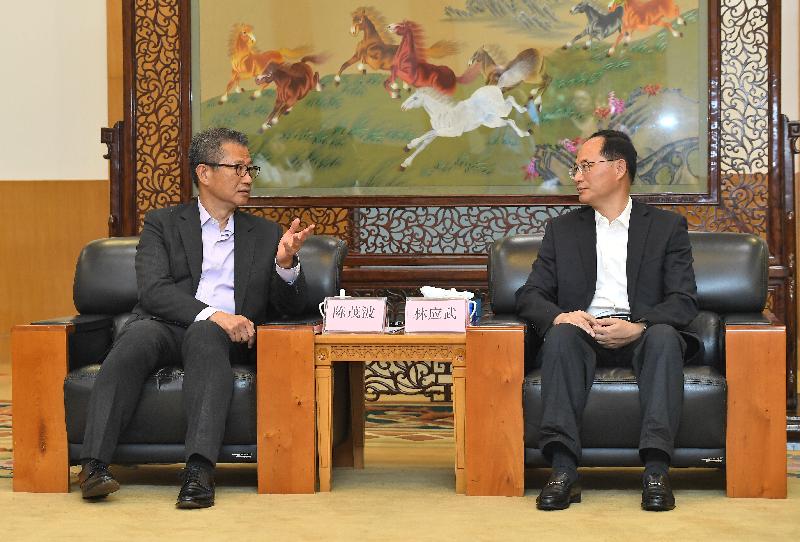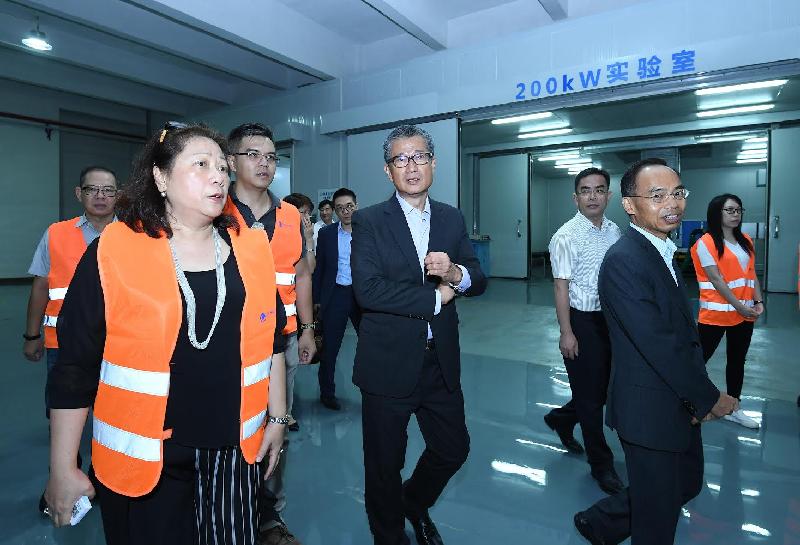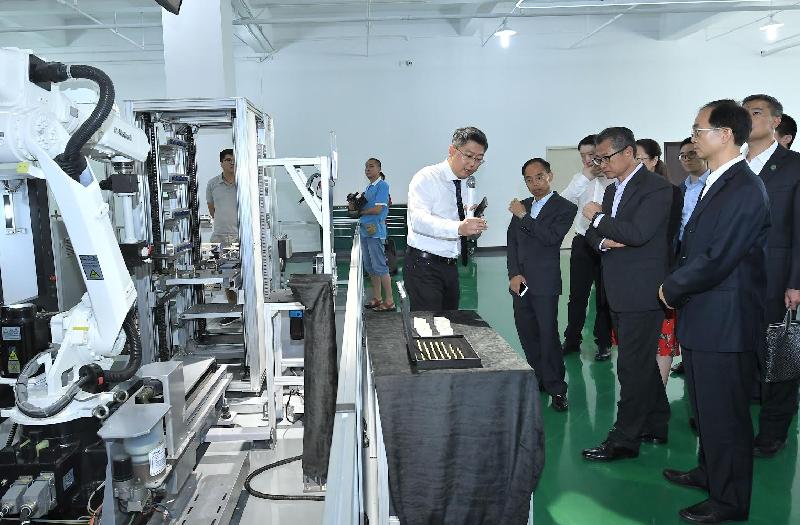CS visits Sham Shui Po District
The Chief Secretary for Administration, Mr Matthew Cheung Kin-chung, today (July 31) visited Sham Shui Po District to keep abreast of development in revitalising historic buildings and providing support for the underprivileged in the district.
Accompanied by the Chairman of the Sham Shui Po District Council(SSPDC), Mr Ambrose Cheung, and the District Officer (Sham Shui Po), Mr Damian Lee, Mr Cheung visited J Life Foundation Limited (Family Service Center) and its facilities. He was pleased to learn that the centre had all along strived to alleviate the poverty situation of needy children and reduce inter-generational poverty through a wide range of support services for the underprivileged in the district such as food assistance, homework guidance and tutorial services.
Mr Cheung also met with families receiving assistance to understand their livelihood challenges and reassure them that the current-term Government would continue to provide appropriate support to the underprivileged through effective use of public resources and initiatives introduced by the Commission on Poverty and the Community Care Fund.
He then proceeded to Mei Ho House to visit the YHA Mei Ho House Youth Hostel and the Heritage of Mei Ho House Museum.
He said that the revitalised Mei Ho House, comprising a youth hostel and an exhibition under one roof, could help foster cultural exchange, enrich Hong Kong’s tourism resources and provide affordable accommodation to tourists.
He expressed special thanks to the Hong Kong Youth Hostels Association for its efforts in strengthening the inclusiveness of the community, passing on local culture and Hong Kong spirit to future generations through the establishment of alumni networks and inviting former residents of Mei Ho House to be docents of the museum.
Mr Cheung then met SSPDC members and carefully listened their views on various development issues and matters of concern to the community.


